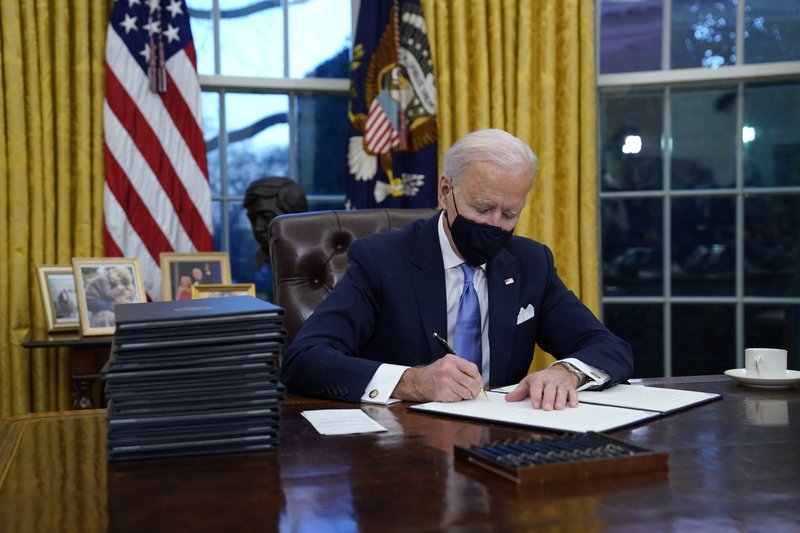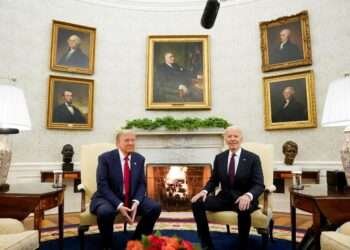Representatives of US President Joe Biden have begun talks with a group of Senate Republicans and Democrats on the President’s $1.9 trillion coronavirus relief package in an effort to win bipartisan backing for the initial legislative effort of his presidency.
Republican Lawmakers have questioned the wisdom in racking up bigger deficits while Democrats are urging President Biden not to spend too much time on bipartisanship when the pandemic is killing thousands of Americans each day and costing more jobs amid tightening restrictions in many communities.
At least a dozen senators met in a virtual call with White House National Economic Council Director, Brian Deese and other senior White House officials. Many hope to approve a relief package before former President Donald Trump’s impeachment trial, which is set to begin in two weeks, overtakes Washington’s attention.
Sen. Angus King, an independent from Maine, called the opening talks a “serious effort.”
“There was not a hint of cynicism or lack of commitment to at least trying to work something out. If they were just trying to jam this through, I don’t think it would have interrupted the Packers game.”
Sen. King also told reporters that there was “absolute consensus” among the group that the No. 1 priority was to speed up the distribution of vaccinations and expanding COVID-19 testing and tracing.
The White House did not seem to budge on breaking up the package or reducing the overall price tag, even as it pushes for bipartisan support. There was also no discussion of pushing it through on a procedural move that could be done without Republicans, King added.
Senators from both parties have raised questions about the economic aid provisions, particularly making direct $1,400 payments to Americans. Senators also want more data on how the White House reached the $1.9 trillion figure.
Republican Sen. Susan Collins of Maine, said, “It seems premature to be considering a package of this size and scope.”
Sen. Collins recommended that she would instead pull the bipartisan group together “and see if we could come up with a more targeted package.” She added in a statement that a bill with additional funding for vaccine distribution “would be useful.”

Ahead of the meeting, Sen. Mitt Romney, R-Utah also raised concerns again about the wisdom of the government engaging in massive deficit spending.
“If we get beyond COVID, I believe that the economy is going to come roaring back. And spending and borrowing trillions of dollars from the Chinese, among others, is not necessarily the best thing we can do to get our economy to be strong long-term.
The talks come as the United States confirmed more than 25 million cases of coronavirus – the most in the world
President Biden has made clear that quickly passing another round of coronavirus relief is a top priority as he seeks to get the surging pandemic and the related economic crisis under control.
With more than 412,000 dead and the economy again losing jobs, the President has argued there is no time to lose.
“We’re going to continue to push because we can’t wait,” said White House Principal Deputy Press Secretary, Karine Jean-Pierre.
“Just because Washington has been gridlocked before doesn’t mean it needs to continue to be gridlocked.”

Sen. Bernie Sanders, the Vermont independent who caucuses with Democrats, said he didn’t have high hopes for negotiations leading to Republican support and suggested Democrats may need to use budget reconciliation to pass it with a simple majority.
The budget reconciliation would allow Democrats to push the package to approval without the 60-vote threshold typically needed to advance a legislation. Republicans used the same tool to pass tax cuts during the Trump administration.
“What we cannot do is wait weeks and weeks and months and months to go forward. We have got to act now. That is what the American people want. “
Sen. Sanders





















